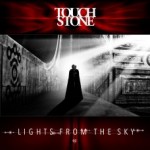In an ideal world people would be free to express any opinion, no matter how offensive it might be. The appropriate response should be ridicule. Or to ignore them altogether as beneath contempt.
But we don’t live in such a world.
Far-right hatemongers Pastor Terry Jones and the shadowy “Sam Bacile” were fully aware that what they did would provoke a violent reaction, and they went ahead and did it anyway. It’s not the first time one Jones’ stunts has resulted in deaths on the other side of the world. Morally, if not legally, they share at least some responsibility for the death of the US ambassador to Libya and all the others that died. “Terrorism by proxy” is the phrase that comes to mind.
Those who use this tragedy as an excuse for one-sided attacks on Islam or Muslims while defending Islamophobes who shout “Fire!” in a crowded theatre are part of the problem, not part of the solution.
This is not a “clash of civilisations” between Islam and The West. It’s a clash between civilisation on one side, and demagoguery and mob rule on the other. Jones, “Bacile” and their fundamentalist and racist apologists are essentially on the same side as the Islamist extremists who whipped up the mob in Bengazi.
Yes, freedom of speech is an essential element of a properly functioning democracy. But should that really extend to deliberately inflammatory speech that gets people killed? One sometimes wonders the true agenda of those who are quick to defend outright hate speech. Do they really believe in free speech as an absolute? Or do they have more sympathy with the hate than they’re prepared to admit?
For more background, this is essential reading, especially on the background and possible agenda of the convicted fraudster using the pseudonym of “Sam Bacile”.



From what I’ve seen, hate speech laws in the U.S. tend to be pretty narrowly defined, so you have to do a lot of work to get what you say labeled as such. It’s not something that can be flung around casually, and shouldn’t. It’s reserved for cross-burners and lynch mobs, which is the right idea.
Yes, hate-speech laws are difficult to draft in ways that can’t be abused to stifle legitimate criticism (see also Britain’s hopelessly broken libel laws and the way they’ve been misused by wealthy crooks to silence anyone who tries to call them out on their wrongdoing). Better to restrict it to explicit incitements to violence.
In terms of moral rather than purely legal responsibility, though…
Absolutely. I was one of the folks who followed the David Irving libel case very closely, because it was a beautiful showcase for how Britain’s libel laws are terribly one-sided and can be used SLAPP-like. Fortunately he picked the worst possible fight and came out of it both financially and reputationally ruined (not that his reputation was all that good to begin with, but this was the last shovelful of dirt over the coffin).